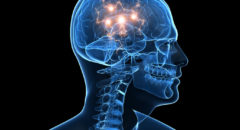
Bipolar disorder (formerly called manic-depressive illness or manic depression) is a mental illness that causes unusual shifts in a person’s mood, energy, activity levels, and concentration. These shifts can make it difficult to carry out day-to-day tasks.
Many celebrities have come out as having bipolar disorder like Lisa Nicole Carson (Love Jones) and Jenifer Lewis (Black-ish, What's Love Got to Do With It, etc), so it's more common than you think.
There are three types of bipolar disorder. All three types involve clear changes in mood, energy, and activity levels. These moods range from periods of extremely “up,” elated, irritable, or energized behavior (known as manic episodes) to very “down,” sad, indifferent, or hopeless periods (known as depressive episodes). Less severe manic periods are known as hypomanic episodes.
Bipolar I disorder is defined by manic episodes that last for at least 7 days (nearly every day for most of the day) or by manic symptoms that are so severe that the person needs immediate medical care. Usually, depressive episodes occur as well, typically lasting at least 2 weeks. Episodes of depression with mixed features (having depressive symptoms and manic symptoms at the same time) are also possible. Experiencing four or more episodes of mania or depression within 1 year is called “rapid cycling.”
Bipolar II disorder is defined by a pattern of depressive episodes and hypomanic episodes. The hypomanic episodes are less severe than the manic episodes in bipolar I disorder.
Cyclothymic disorder (also called cyclothymia) is defined by recurring hypomanic and depressive symptoms that are not intense enough or do not last long enough to qualify as hypomanic or depressive episodes.
Sometimes a person might experience symptoms of bipolar disorder that do not match the three categories listed above, and this is referred to as “other specified and unspecified bipolar and related disorders.”
RELATED: What's The Difference Between Bipolar Disorder & Depression?
Bipolar disorder is often diagnosed during late adolescence (teen years) or early adulthood. Sometimes, bipolar symptoms can appear in children. Although the symptoms may vary over time, bipolar disorder usually requires lifelong treatment. Following a prescribed treatment plan can help people manage their symptoms and improve their quality of life.
How to Spot Symptoms of Bipolar Disorder in Others
If you notice something off in the behavior of loved ones, family, friends, or co-workers, they could be just going through a rough time. Maybe it’s an accumulation of stress or a problem they’re wrestling with. However, repeated and multiple signs that manifest that are associated with bipolar disorder may be cause for concern. According to the American Psychological Association, here are 9 symptoms to look for that may indicate the presence of bipolar disorder in others:
1. Trouble sleeping.
2. Exhibiting tremendous energy.
3. Acting as if they can achieve and do anything they want.
4. Looking and acting “wired,” agitated, or jumpy.
5. Belief they have greater importance or better connections than others.
6. Displays of anger and aggression if their behavior or views are challenged.
7. Frequent engagement in risky behavior, including unsafe driving, risky sex, overspending, reckless consumption of alcohol or other drugs.
8. Hallucinations or delusions, causing them to see, feel, or hear things not in reality.
9. Inability to realize their inappropriate behavior or potential consequences resulting from it.
9 Symptoms in Yourself
Reports from individuals with bipolar disorder who remembered episodes and feelings they had from their adolescence point to certain signs that were potentially indicative of the condition, a diagnosis that was later confirmed. As is typical, many of these individuals say they experienced mania. During this manic period they behaved in ways that damaged relationships, including engaging in promiscuous activity and other risky behavior, such as drug and alcohol abuse. They also recalled having boundless energy, lack of sleep, and feeling extreme frustration.
Be on the lookout for the following nine (9) signs of bipolar disorder in yourself:
- Repeated episodes of major depression.
- First major depressive episode before age 25.
- First-degree relative has bipolar disorder.
- Mood and energy levels higher than most people – when you’re not depressed.
- Overeating and sleeping too much when you are depressed.
- While depressed, losing contact with reality.
- Developing mania or hypomania when you were taking an antidepressant.
- If taking an antidepressant, it stopped working in a few months.
- Unsuccessful results after trying several different antidepressants.









